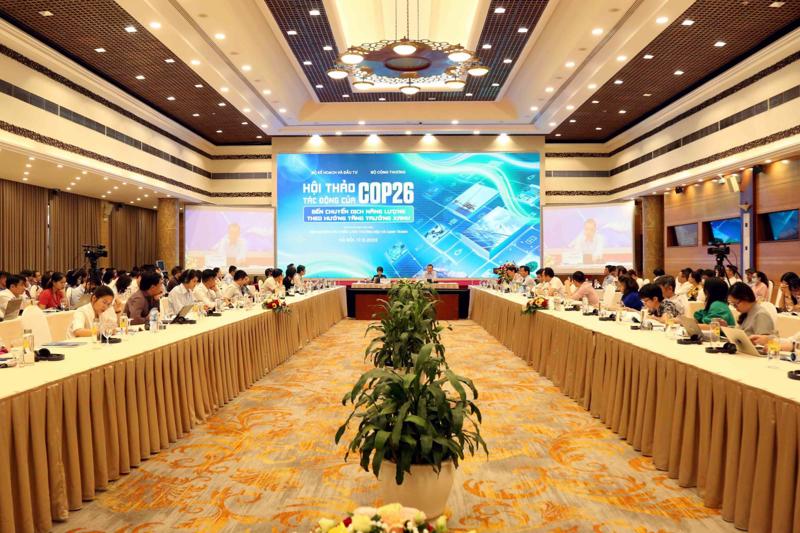Vietnam, despite being a developing country with limited resources, is taking real steps in transforming its energy structure towards the goal of net-zero emissions by 2050, which is part of the inexorable and irreversible trend of transitioning towards green and sustainable energy.
Participation by all
As the energy sector plays an important role and needs to shift towards green and sustainability concepts, this requires the participation of all in the economy.
“The process of energy transition in a green and sustainable direction is the responsibility of all stakeholders, from the central to local levels, as well as sectors, businesses, social organizations, and communities,” Deputy Minister of Planning and Investment Nguyen Thi Bich Ngoc told the “Impacts of COP26 on energy transition towards green growth” seminar, co-hosted by the Ministry of Industry and Trade (MoIT) and the Ministry of Planning and Investment (MPI) on August 17 in Hanoi.
According to Deputy Minister of Industry and Trade Dang Hoang An, building an appropriate, feasible, sustainable, and suitable energy development and transition strategy in line with actual conditions in the country is an important task. The two main goals of the strategy are ensuring national energy security in the medium and long terms and ensuring access to energy for people and the economy at a reasonable cost.
In 2021, MPI advised the Prime Minister to promulgate the National Green Growth Strategy for the 2021-2030 period and vision to 2050. Recently, on July 22, the Ministry also advised the National Action Plan on green growth for the 2021-2030 period.
Meanwhile, MoIT has updated the draft National Power Development Plan for the 2021-2030 period and vision to 2045 (Power Plan VIII). The draft is now being considered for approval by the Prime Minister in the near future.
These are comprehensive and overall orientations for the transformation of the energy sector to contribute to the national emissions reduction target, Ms. Ngoc added.
Financial support needed
Vietnam’s process of green and sustainable energy transition requires adequate partnerships and support from international organizations, developed countries, and large foreign enterprises. To ensure national energy security and meet requirements in socio-economic development and electricity demand for daily life at a reasonable price, the energy transition roadmap needs to be carefully built, analysts agree.
“There is an immediate and strong need to increase public investments in transmission and distribution networks by Electricity of Vietnam (EVN) and the National Power Transmission Company (NPT), to upgrade the capacity of the power networks and to build storage capacity to enhance system flexibility for the integration of renewable energy,” Mr. Rahul Kitchlu, Program Leader for Infrastructure and Lead Energy Specialist at the World Bank (WB), told the seminar.
According to Ms. Ngoc, the WB estimates in its recently-released Vietnam Country Climate and Development Report (CCDR) that Vietnam may need a total of $368 billion between 2022 and 2040, or approximately 6.8 per cent of GDP a year, to build resilience and decarbonize towards net zero emissions.
Specifically, the resilience-building roadmap alone will account for about two-thirds of the amount, as significant capital needs to be mobilized to protect assets and infrastructure as well as vulnerable populations, he noted. The cost of the decarbonization pathway mainly comes from the energy sector, including the cost of investing in renewables and managing the transition away from coal, which could come to around $64 billion from 2022 to 2040.
Therefore, building an appropriate, feasible, and sustainable energy transition and development strategy suitable to the actual conditions in the country is the most important task for Vietnam.
Mr. An assessed that the process of energy transition towards green and sustainability concepts requires a commitment to financial and technical support from developed countries since it is difficult for Vietnam to achieve this by itself.









 Google translate
Google translate